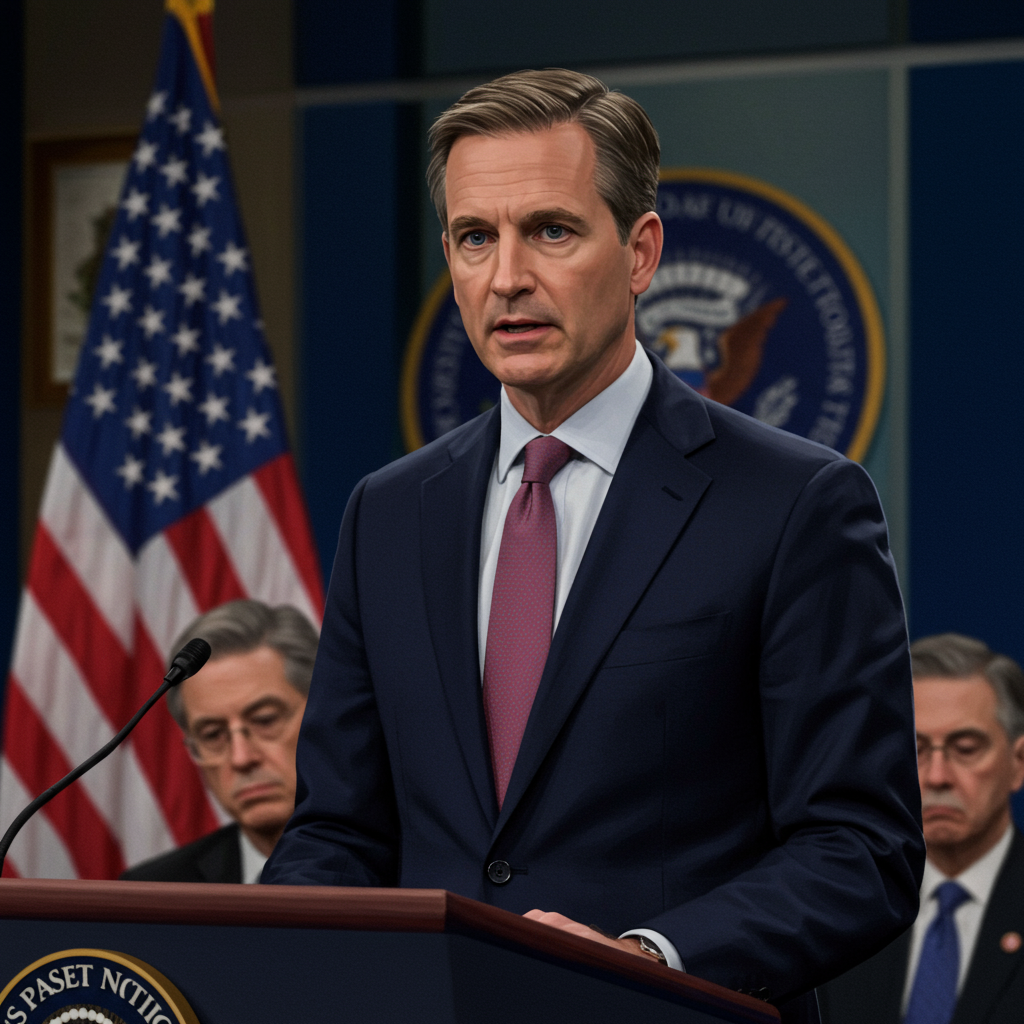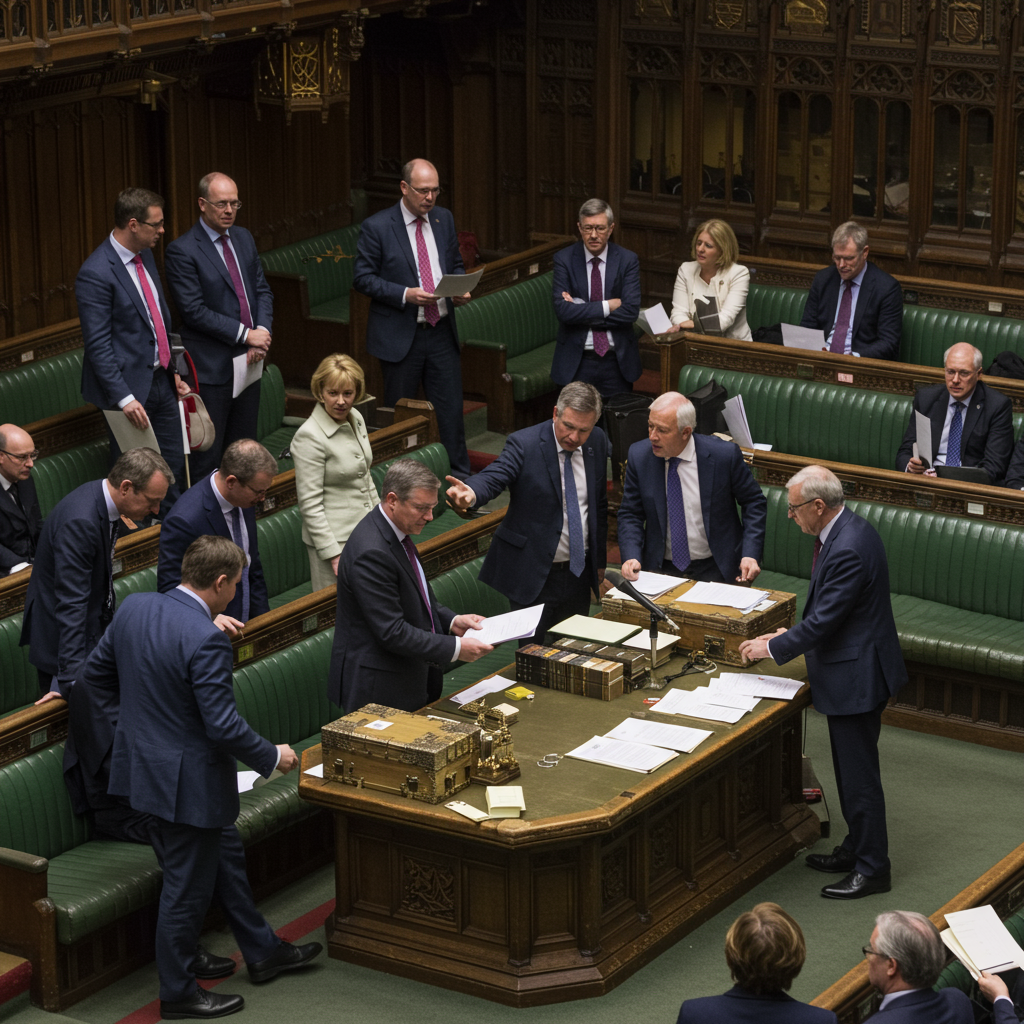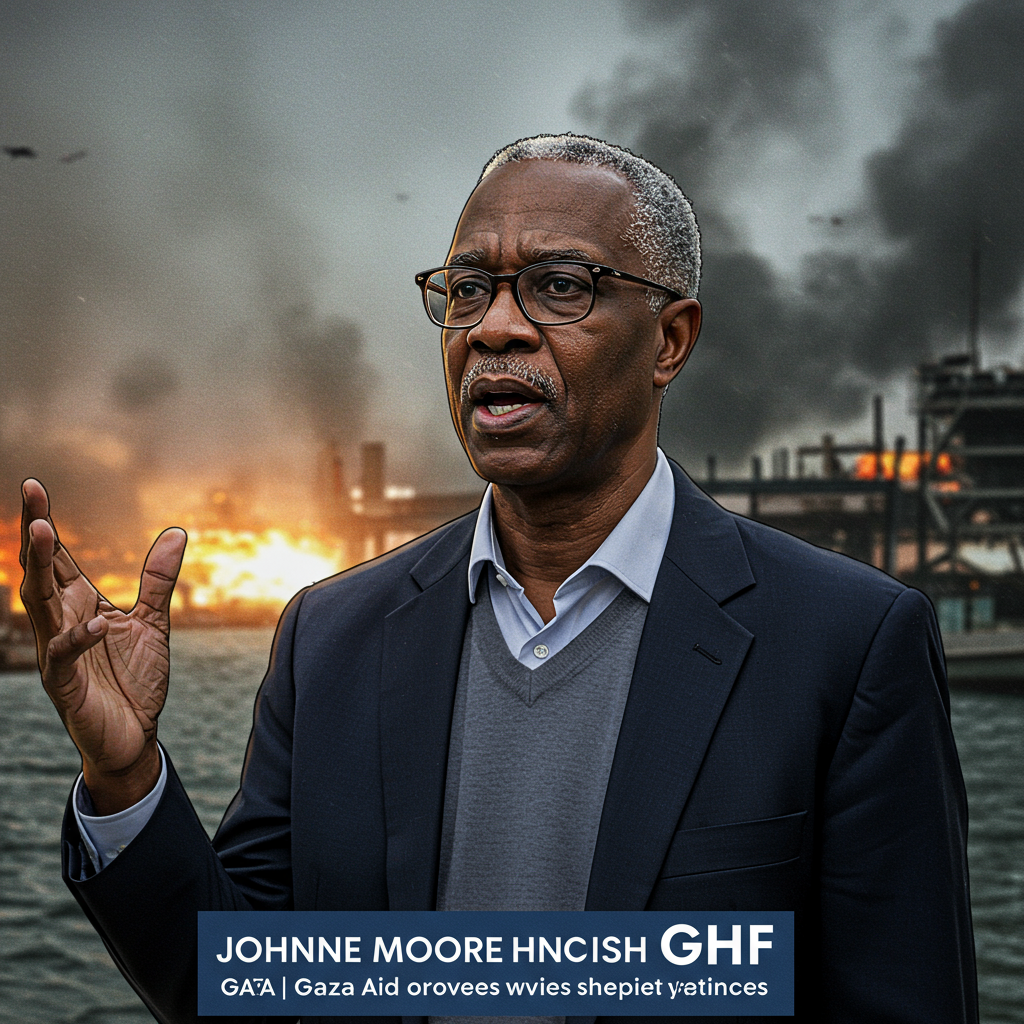The United States continues its vigorous pursuit of global stability and the advancement of American interests, as outlined in a critical diplomatic briefing on July 24, 2025. Principal Deputy Spokesperson Thomas “Tommy” Pigott addressed a range of pressing international issues, signaling shifts in key negotiations, strengthened economic alliances, and ongoing humanitarian efforts. This comprehensive update delves into the U.S. administration’s strategies, challenges, and steadfast commitments in an evolving geopolitical landscape.
U.S. Diplomacy at a Crossroads: Gaza Ceasefire Talks Collapse
U.S. diplomatic efforts to broker a ceasefire in Gaza have reached a critical juncture. Following the latest response from Hamas, the U.S. has recalled its team from Doha for urgent consultations. Special Envoy Steve Witkoff stated that Hamas’s actions “clearly show a lack of desire to reach a ceasefire,” questioning their coordination and good faith.
Hamas Blamed as Negotiations Halt
The U.S. maintains its unwavering commitment to securing a ceasefire and the release of hostages. However, the administration firmly places the onus for stalled negotiations on Hamas. Officials assert that the militant group has repeatedly demonstrated an unwillingness to engage constructively, citing previous ceasefire breaches, including the initial October 7th attacks. This stance highlights a deep frustration within U.S. diplomatic circles regarding Hamas’s perceived obstructionism. Special Envoy Witkoff’s statement underscores the U.S. belief that Israel has long accepted the proposed deal. The U.S. is now exploring “alternative options” to bring hostages home and foster a more stable environment for Gaza’s population.
The Escalating Humanitarian Crisis in Gaza
The humanitarian situation in Gaza remains a profound concern for the U.S. government. Reports of widespread starvation, including tragic deaths of children from malnutrition, are deeply acknowledged. Despite this grim reality, the U.S. unequivocally attributes the “humanitarian catastrophe” to Hamas. Officials argue that Hamas could immediately end the conflict by releasing hostages and laying down arms. The U.S. also rejects any insinuation that Israel is weaponizing food. It vehemently disputes claims that the U.S. is complicit in allowing civilians to starve.
The Role of the Gaza Humanitarian Foundation (GHF)
In response to the crisis, the U.S. has championed the Gaza Humanitarian Foundation (GHF) as a primary mechanism for aid delivery. As of this briefing, nearly 90 million meals have been distributed through the GHF since May 27th. This is touted as a significant achievement given the challenging circumstances. The GHF is designed to ensure aid reaches those in need without being “looted or weaponized by Hamas,” a concern consistently voiced by U.S. officials. While acknowledging that such efforts are “never enough” in a war zone, the U.S. sees GHF’s progress as vital. It actively calls for increased international support for this foundation. Previous briefings cited 69 million meals distributed earlier in July, underscoring the ongoing scale-up. The U.S. views Hamas’s insistence on ending GHF operations as proof of the foundation’s effectiveness in preventing illicit gains.
Seeking New Paths for Hostage Release
With direct ceasefire talks paused, the U.S. is now contemplating alternative strategies for the release of hostages held in Gaza. While specific details on these options were not disclosed, the urgency of the situation was emphasized. The U.S. commitment to bringing American citizens and all hostages home remains a top priority. In related diplomatic developments, the U.S. confirmed it would not attend an upcoming two-state solution conference in New York. This aligns with President Trump’s “realistic” view of the current situation. The administration prioritizes a ceasefire and rebuilding Gaza with Arab partners, given the territory is currently considered “uninhabitable.”
Bolstering Alliances: U.S. Foreign Policy in the Indo-Pacific
The Indo-Pacific region stands as a cornerstone of America’s strategic and economic interests. The U.S. is actively pursuing a bold and proactive foreign policy to reinforce its enduring commitment to peace, security, and prosperity across the region. This strategy involves deepening partnerships and advancing key economic initiatives.
Landmark Trade Deals and Economic Partnerships
This week, the U.S. has made significant strides in economic diplomacy within the Indo-Pacific. President Trump announced a landmark economic agreement with Japan, solidifying ties with a crucial ally and trading partner. This historic deal underscores the robust U.S.-Japan relationship. Furthermore, the U.S. and Indonesia established a framework for negotiating a reciprocal trade agreement, a vital step toward expanding bilateral economic ties. This framework promises new opportunities for exporters in both nations. On Tuesday, President Trump hosted Philippine President Ferdinand Marcos, Jr. in Washington. Their meeting culminated in a new trade agreement designed to reduce tariffs and expand market access, further strengthening economic partnerships with this key ally. These collective agreements underscore the United States’ sustained leadership and strong collaborative efforts with Indo-Pacific allies.
Strategic Engagements Across Asia
Deputy Secretary of State for Management and Resources Michael Rigas is currently traveling to Seoul and Manila. His visit aims to bolster the State Department’s operational posture and deepen crucial partnerships throughout the Indo-Pacific. This aligns with the administration’s broader vision of a free, open, and secure Indo-Pacific. Secretary Rubio’s prior travel to Kuala Lumpur for ASEAN-related conferences earlier in July also highlighted this commitment, which included a nuclear cooperation Memorandum of Understanding with Malaysia, paving the way for a “123 Agreement” on peaceful nuclear transfers. These high-level engagements underscore the region’s importance, which accounts for two-thirds of global growth.
Global Hotspots: Urgent Calls for Peace and Accountability
Beyond the Middle East, the U.S. is actively engaged in addressing various global conflicts and humanitarian concerns. Its diplomacy seeks to mitigate violence and ensure accountability.
Addressing Border Violence in Southeast Asia
The U.S. expressed profound concern over escalating violence along the Thailand-Cambodia border. Reports of civilian harm are deeply distressing. The U.S. urges an immediate cessation of hostilities, emphasizing the critical need for civilian protection and a peaceful resolution to the conflict.
Pursuit of Justice in Syria
The U.S. is actively seeking justice regarding the death of U.S. citizen Hosam Saraya in Syria. Direct discussions have been held with the Syrian Government, with an urgent call for an immediate and thorough investigation into the matter. The U.S. insists that Hosam and his family deserve justice and that those responsible must be held accountable for this atrocity. In broader Syria policy, President Trump’s administration announced sanctions relief on May 13th, aiming to foster a “peaceful and prosperous country” and encouraging leadership from the Syrian Government on next steps.
Ukraine Conflict: Diplomacy Amidst Escalation
The U.S. is closely monitoring the conflict in Ukraine. It acknowledged a third round of direct talks between Russia and Ukraine in Istanbul. The U.S. supports Ukraine’s persistent calls for a full and unconditional ceasefire, including a complete halt to all strikes on civilian and critical infrastructure. The U.S. welcomed news of a prisoner exchange agreement between Russia and Ukraine, particularly involving severely ill and wounded individuals. While encouraging continued direct talks towards a comprehensive ceasefire and a negotiated peace settlement, U.S. officials also condemn Russia’s escalating attacks. There were also questions regarding reports of China supplying drone engines to Russia, which the Spokesperson said would be investigated. Previous U.S. statements have confirmed the resumption of U.S. weapons shipments to Ukraine, following a standard review.
Sustaining Vital Programs: PEPFAR and Aid Reform
U.S. foreign assistance programs are undergoing strategic review and reaffirmation, reflecting an “America First” approach focused on efficiency and impact.
Commitment to Global Health Initiatives
The President’s Emergency Plan for AIDS Relief (PEPFAR) remains a cornerstone of U.S. global health initiatives. Secretary Rubio has unequivocally stated that PEPFAR is an “important and lifesaving program that will continue.” This commitment underscores the administration’s dedication to combating HIV/AIDS worldwide. The program’s continuation is assured, even in conflict zones, until countries can achieve self-sufficiency.
A New Vision for U.S. Foreign Assistance
The administration is implementing a new vision for U.S. foreign aid, shifting from a model of dependency to one of partnership. Recipients are increasingly viewed as “allies and partners,” rather than solely as aid beneficiaries. The long-term goal is to transition aid responsibilities to local partners and other entities. This aligns with a broader reform that recently saw the U.S. Agency for International Development (USAID) cease implementing foreign assistance programs. The Department of State now directly leads these efforts. This reorganization, enabled by a recent Supreme Court decision, aims for greater accountability, strategy, and efficiency, ensuring taxpayer money directly advances U.S. national interests. The department strives to be “smaller, more relevant, and more effective” in implementing President Trump’s vision.
Broader Diplomatic Landscape: Recent Context and Challenges
The U.S. diplomatic landscape extends to addressing various complex issues, from internal security concerns to international legal challenges.
Cybersecurity Threats and Counterterrorism Efforts
The State Department is acutely aware of and actively addressing cybersecurity threats, including a recent incident where an imposter attempted to gain access by impersonating the Secretary of State via a fake Signal ID. This highlights the ongoing commitment to safeguarding sensitive information. In counterterrorism efforts, the U.S. has recently sanctioned individuals and “sham charities” for financially supporting Hamas and the Popular Front for the Liberation of Palestine (PFLP) under the guise of humanitarian work. This underscores a strong commitment to preventing the abuse of the nonprofit sector by terrorist organizations. Furthermore, the U.S. continues to press the Government of Jordan for the extradition of Ahlam al-Tamimi, a convicted terrorist responsible for a 2001 Jerusalem bombing that killed three Americans. This pursuit falls under President Trump’s “America First” foreign policy, which prioritizes making America “safer, stronger, and more prosperous.” On domestic fronts, the administration remains “undeterred” in securing its borders and enforcing laws, citing efforts to remove “criminal illegal aliens” and sanctioning fentanyl traffickers like the “Los Chapitos” faction of the Sinaloa Cartel. Some “criminal illegal aliens” have been temporarily moved to Guantanamo Bay prior to repatriation.
Navigating ICC Actions and International Pressure
The U.S. has taken a firm stance against actions by the International Criminal Court (ICC). Recently, the U.S. announced sanctions on UN Human Rights Council Special Rapporteur Francesca Albanese for “abuse of her role,” including engaging in ICC actions against Israeli officials and U.S. companies. The U.S. views such ICC actions as setting a “dangerous precedent for lawfare” that undermines national security and sovereignty. Citing President Trump’s Executive Order 14203, the U.S. is imposing “tangible and significant consequences,” including blocking property and visa restrictions, to protect its sovereignty and its allies, particularly Israel. Earlier in June, the U.S. sanctioned two ICC pretrial chamber members who signed arrest warrants for Israeli Prime Minister Netanyahu and Defense Minister Gallant, deeming such allied actions “extremely unhelpful.” Additionally, President Trump has received Nobel Peace Prize nominations for perceived mediation in the India-Pakistan and Iran-Israel conflicts, though his focus remains on results.
Frequently Asked Questions
Why did U.S.-backed Gaza ceasefire talks collapse on July 24, 2025?
U.S. Special Envoy Steve Witkoff stated that Hamas’s latest response “clearly shows a lack of desire to reach a ceasefire” in Gaza. The U.S. administration indicated that Hamas did not appear to be coordinated or acting in good faith. Officials highlighted Hamas’s historical pattern of breaking ceasefires, including the October 7th attack. This perceived uncooperativeness from Hamas led the U.S. to recall its negotiating team from Doha and consider “alternative options” for hostage release and fostering stability in Gaza.
How is the U.S. ensuring humanitarian aid reaches Gaza amidst the conflict?
The U.S. is primarily channeling humanitarian aid through the Gaza Humanitarian Foundation (GHF). As of July 24, 2025, nearly 90 million meals have been distributed via GHF. This mechanism is championed by the U.S. as a means to deliver aid effectively while preventing it from being “looted or weaponized by Hamas.” The U.S. actively seeks additional support for the GHF, acknowledging that while significant, aid efforts are “never enough” in an active war zone.
What are the key priorities of U.S. foreign policy in the Indo-Pacific region as of July 2025?
As of July 2025, U.S. foreign policy in the Indo-Pacific prioritizes strengthening economic partnerships and advancing strategic interests. Key initiatives include new trade agreements with Japan and the Philippines, along with a framework for reciprocal trade negotiations with Indonesia. Deputy Secretary Michael Rigas’s visit to Seoul and Manila aims to enhance departmental posture and deepen alliances. This region, accounting for two-thirds of global growth, is central to the administration’s vision of a “free, open, and secure Indo-Pacific.”
Conclusion
The July 24, 2025 diplomatic briefing underscores the dynamic and complex nature of U.S. foreign policy. While facing significant challenges, particularly the stalled Gaza ceasefire negotiations and the dire humanitarian situation, the U.S. remains resolute in its commitment to peace, security, and American interests. From bolstering trade alliances in the Indo-Pacific to addressing global humanitarian crises and reinforcing vital aid programs like PEPFAR, the administration continues to navigate a challenging international environment. The emphasis on accountability, strategic partnerships, and a results-driven “America First” approach signals a clear direction for U.S. diplomacy as it confronts ongoing geopolitical shifts and strives for global stability.




